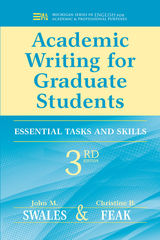
Among the many changes in the third edition:
*newer, longer, and more authentic texts and examples
*greater discipline variety in texts (added texts from hard sciences and engineering)
*more in-depth treatment of research articles
*greater emphasis on vocabulary issues
*revised flow-of-ideas section
*additional tasks that require students to do their own research
*more corpus-informed content
*binding that allows the book to lay flat when open.
The Commentary (teacher's notes and key) (978-0-472-03506-9) has been revised expanded.
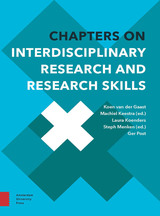
This edition is a collection of chapters from An Introduction to Interdisciplinary Research (2016), edited by Steph Menken and Machiel Keestra, and Academic Skills for Interdisciplinary Studies. Revised edition (2019), by Koen van der Gaast, Laura Koenders and Ger Post, published by Amsterdam University Press.
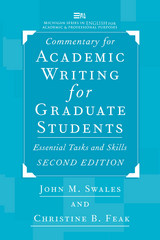
Like its predecessor, this edition of Academic Writing for Graduate Students
"explains understanding the intended audience, the purpose of the paper, and academic genres.
"includes the use of task-based methodology, analytic group discussion, and genre consciousness-raising.
"shows how to write summaries and critiques.
"features "language focus" sections that address linguistic elements as they affect the wider rhetorical objectives.
"helps students position themselves as junior scholars in their academic communities.
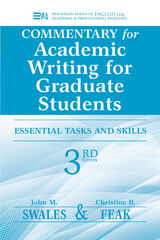
The Commentary for the third edition of this successful guide to writing has been revised and expanded in many ways to provide more support for instructors; this includes additional tasks for Units Two and Four to supplement the main text. However, the collegial tone established in previous Commentaries between Swales & Feak and instructors has been retained.
This volume contains commentaries on each of the eight units plus the two appendixes. The format for each unit includes
- a summary of the main points of the unit along with a list of topics covered.
- a synopsis of activities, divided into Language Focus sections and description of tasks.
- some general notes designed to capture the character of the unit, to indicate alternative activities, or to anticipate problems that may arise.
- detailed commentary and discussion of individual tasks, including model or sample answers where possible.

Education, Skills, and Technical Change explores various facets of these questions and provides an overview of educational attainment in the United States and the channels through which labor force skills and education affect GDP growth. Contributors to this volume focus on a range of educational and training institutions and bring new data to bear on how we understand the role of college and vocational education and the size and nature of the skills gap. This work links a range of research areas—such as growth accounting, skill development, higher education, and immigration—and also examines how well students are being prepared for the current and future world of work.

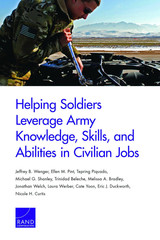
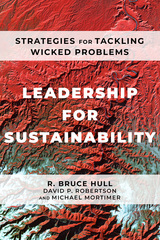
Leadership for Sustainability gives readers perspective and skills for promoting creative and collaborative solutions. Blending systems thinking approaches with leadership techniques, it offers dozens of strategies and specific practices that build on the foundation of three main skills: connecting, collaborating, and adapting. Inspiring case studies show how the book’s strategies and principles can be applied to diverse situations:
- Coordinating the activities of widely dispersed individuals and groups who may not even know they are connected, illustrated by the work of urban planners, local businesses, citizens, and other stakeholders advancing ambitious climate action goals via a Community Energy Plan in Arlington County, Virginia
- Collaborating with diverse stakeholders to span boundaries despite their differences of opinion, expertise, and culture, as illustrated by the bold actions of a social entrepreneur who transformed the global food service industry with the “plant-forward” movement
- Adapting to continuous change and confounding uncertainty, as a small nonprofit organization mobilizes partners to tackle poverty, water scarcity, sanitation, and climate change in rural India
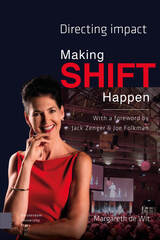
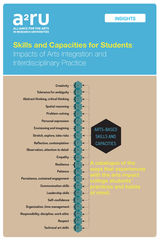

Imagine yourself in your new job, doing your best to make a good impression—and your boss asks you to do something that doesn’t feel right, like fudge a sales report, or lie to a customer. You have no idea how to handle the situation, and your boss is hovering. When you’re caught off guard, under pressure from someone more powerful, it’s easy to make a mistake. And having made one, it’s easier to rationalize the next one.
The Young Professional’s Survival Guide shows how to avoid these traps in the first place, and how to work through them if you can’t avoid them. Many of the problems that arise in the workplace are predictable. C. K. Gunsalus, a nationally recognized expert on professional ethics, uses short, pungent real-world examples to help people new to the work world recognize the situations that can lead to career-damaging missteps—and prevent them. Gunsalus offers questions to ask yourself (and others) to help you recognize trouble and temptation, sample scripts to use to avoid being pressured into doing something you’ll regret, and guidance in handling disputes fairly and diplomatically. Most of all, she emphasizes, choose your mentors for their characters as well as their titles and talents.
You can’t control the people around you, but you can control what you do. Reliance on a few key habits and a professional persona, Gunsalus shows, can help you advance with class, even in what looks like a “casual” workplace.
READERS
Browse our collection.
PUBLISHERS
See BiblioVault's publisher services.
STUDENT SERVICES
Files for college accessibility offices.
UChicago Accessibility Resources
home | accessibility | search | about | contact us
BiblioVault ® 2001 - 2024
The University of Chicago Press









